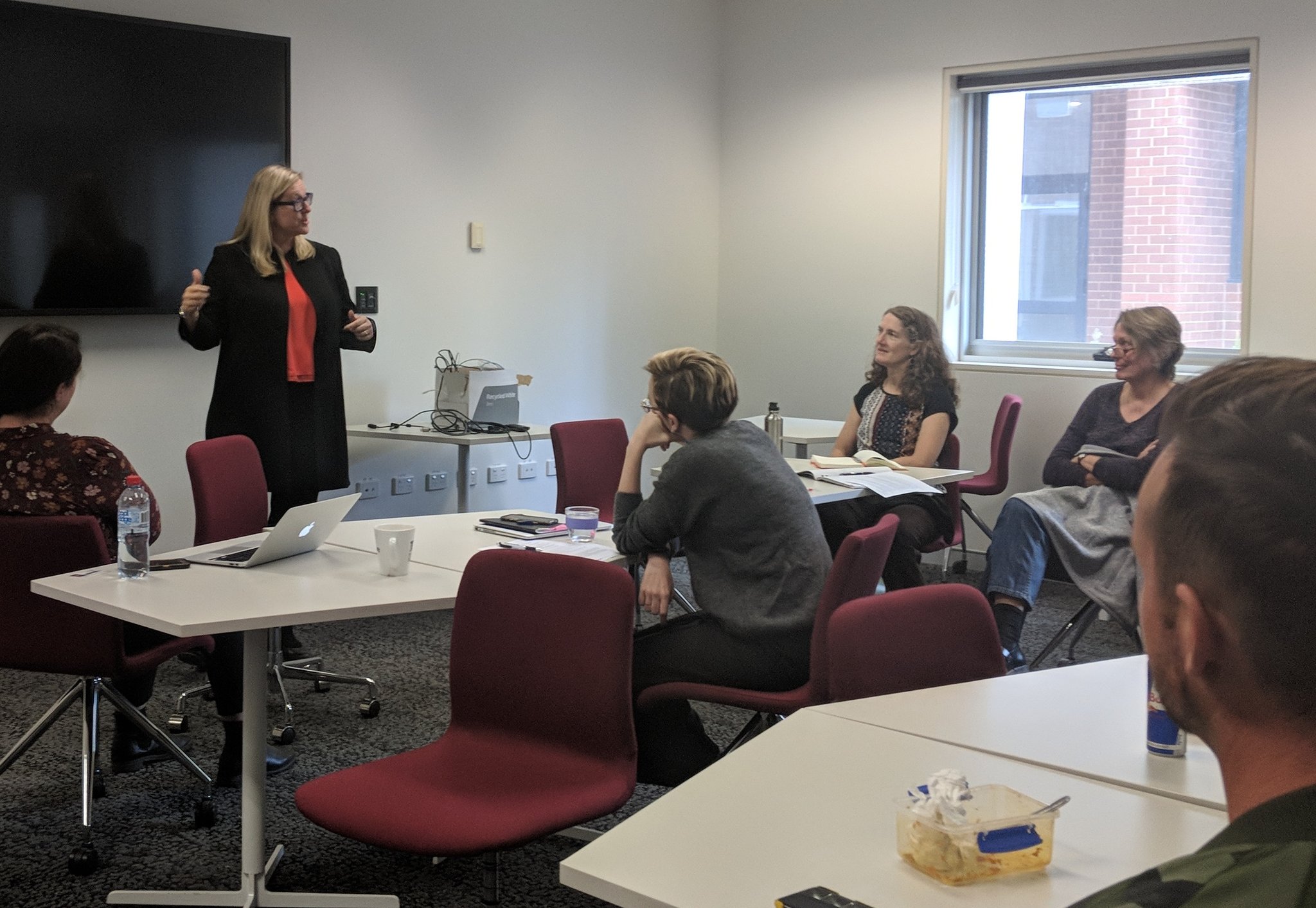CPAS PCST Spotter's Guide

CPAS team huddle ahead of #PCST2018 with questions, feedback and advice: be prepared, be direct, be gracious — and don't go over time! pic.twitter.com/1ysM9Z6yTm
— ANU CPAS (@ANU_CPAS) March 21, 2018
The international Public Communication of Science and Technology (PCST) conference this year is in beautiful Dunedin, New Zealand — practically on our doorstop, and we're taking full advantage.
The programme is packed full of new research in science communication from around the world, but if you're looking to catch as many CPASians as you can, we've pulled together this handy (likely non-exhaustive) list of everywhere our researchers will be popping up.
(We're also a silver sponsor of PCST — look for us at the coffee cart!)
Wednesday 4 April
Parallel Session A
Author: Ruth O'Connor
Co-authors: Alan Irwin, Dominique Brossard, Jennifer Manyweathers & Birte Fähnrich
Author: Vanessa de Kauwe
Author: Merryn McKinnon
Co-author: Christine O'Connell
Parallel Session B
B3 (Roundtable) Systemic support for scientists' communication and engagement
Author: Brooke Smith
Co-authors: Eric Marshall, John Besley, Bruce Lewenstein, Marina Joubert & Joan Leach
B5 (Roundtable) Engaging the STEM-excluded: critical perspectives on broadening participation
Author: Matthew Hickman
Co-authors: Bronwyn Bevan, Graham Walker, Robert Inglis & Craig Tomlinson
B8 (Paper) Valuing good engagement process and individual outcomes in decision-maker engagement with science
Author: Ruth O'Connor
Co-authors: Joan Leach, Fabien Medvecky, Lilly Lim-Camacho & Jeanne Nel
B9 (Show, tell and talk) Science communication for citizen scientists: fostering community capacity for environmental leadership
Author: Merryn McKinnon
Co-authors: Jennifer Loder, Angela Dean & Karen Vella
Parallel session C
C2 (Roundtable) Turning undergraduates into science storytellers. What are the best practices?
Author: Mark Sarvary
Co-authors: Kathleen Gifford, Bruce Lewenstein, Merryn McKinnon, Fabien Medvecky & Will Grant
Poster session
Tour 4: (Risk Communication) School-based disaster risk reduction program: a critical analysis on role-playing in evacuation training
Mita Anggaryani
Thursday 5 April
K2 (Speakers' corner) Science Communication Strategies in Tertiary Student Recruitment
Author: Tangyao Zhang
Parallel session D
D3 (Roundtable) What knowledge and skills define a professional science communicator?
Author: Elaine Reynoso
Co-authors: Toss Gascoigne, Alexander Gerber, Luisa Massarani & Ana Claudia Nepote
D4 (Roundtable) Can hype be a force for good? – Debating the benefits and drawbacks of science hype
Author: Tara Roberson
Co-authors: Sujatha Raman, Megan Munsie, Heather Bray & David Kirby
Parallel session E
E1 (Grouped paper) Building a theoretical basis for science communication
Author: Jennifer Metcalfe
Co-authors: Joan Leach, Brian Trench & Bruce Lewenstein
E2 (Roundtable) Outdoor science parks - increasing community participation and building new society partnerships
Author: Ronen Mir
Co-authors: Mikko Myllykoski, Graham Walker & Elaine Reynoso
Parallel session F
F2 (Roundtable) Building Public Understanding of Population Health Science: Insights from a unique new collaboration
Author: Merryn McKinnon
Co-author: Samantha Rowbotham, Penny Hawe, Will Grant, Anita Beck & Christine O'Connell
F6 (Paper) When a risk message fails – telling the story of raw milk in Australia
Author: Penny Wilson
F8 (Idea in progress)
Treating patients with an illness that may not exist- using Lyme or Lyme-like illness in Australia as a case study for developing patient centric communication strategies and policy guidelines for interacting with complex and controversial illnesses
Author: James Ansell
Government credibility in a post-expert world: a case study of GMO communications in China
Author: Tangyao Zhang
Poster Session
Tour 6: (Health Communication) Evaluation of vaccine communications and interventions, 1998-2014: do any actions have a shown improvement in reducing vaccine hesitancy and increasing vaccination rates to herd immunity levels?
Friday 6 April
Plenary Panel: What is the Social Function of Science Communication?
featuring Prof Maja Horst, Sir Peter Gluckman, Dr Rod Lamberts, Dr Birte Faehnrich
Parallel Session G
G4 (Roundtable) Research meets practice: outcomes of the Bellagio meeting
Author: Toss Gascoigne
Co-authors: Michelle Riedlinger, Massimiano Bucchi, Maarten van de Sanden & Peter Broks
G8 (Paper)
You need to shut up: research silencing and its implications for public health policy
Author: Dr Jacqui Hoepner
Evaluation of vaccine communications and interventions, 1998-2014: do any actions have a shown improvement in reducing vaccine hesitancy and increasing vaccination rates to herd immunity levels?
Author: James Ansell
Tracking trends in demand for Australia's research workforce
Author: Will Grant
Co-authors: Inger Mewburn & Hanna Suominen
Parallel Session H
H5 (Roundtable) Science communication and socio-environmental problems: the case of water and forests
Author: Susana Herrera
Co-author: Ana Claudia Nepote, Jennifer Metcalfe, James G. Cantrill & Alexander Gerber
H6 (Paper)
Defining public attitudes and understanding of human gene therapy in Australia
Author: Michel Watson
National surveys: if you're going to bother, bother hard!
Author: Rod Lamberts
Co-author: Lyndal Byford
Parallel session I
I1 (Roundtable) Talking about values in science communication
Author: Fabien Medvecky
Co-authors: Massimiano Bucchi, Joan Leach, Michael Dahlstrom
I3 (Roundtable) Creating the stories together
Author: Jan Riise
Co-authors: Jenni Metcalfe, Alexander Gerber, Yael Barel
I4 (Paper) If you want to go far, go together – partnerships to create African science centres
Author: Graham Walker
